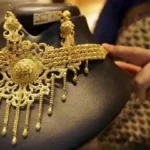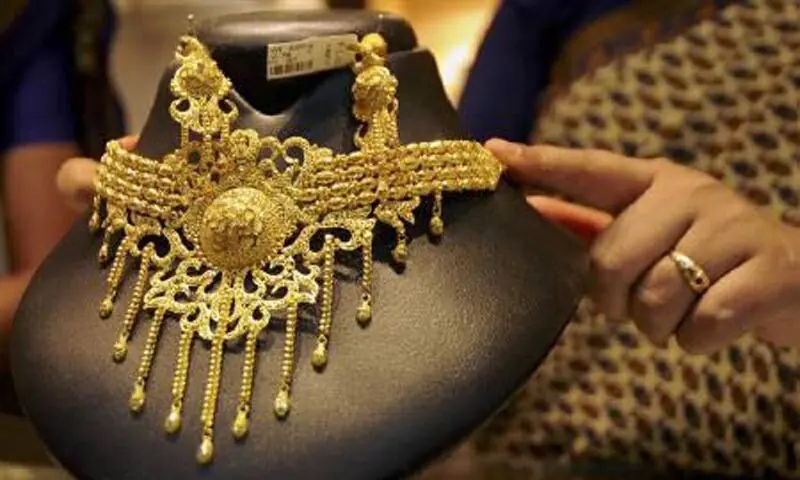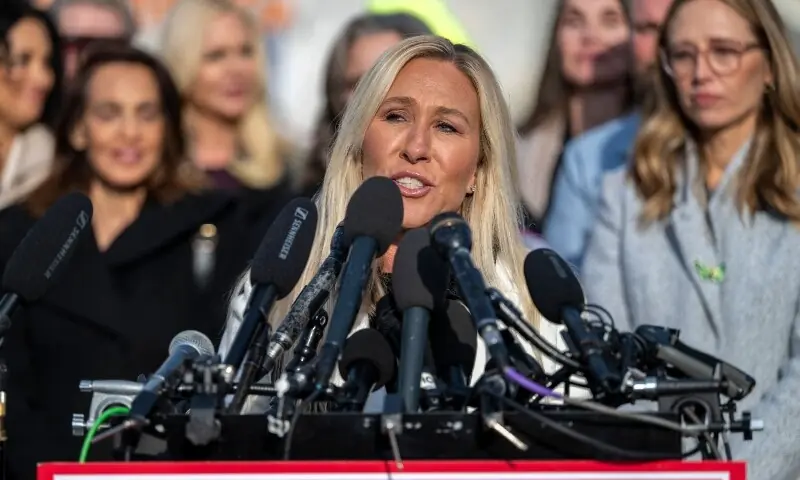The Ministry of Commerce has rescinded the suspension of Statutory Regulatory Order (SRO) 760 of 2013, which regulates the trade in precious metals and allows the import and export of gold, it was learned on Saturday.
In May, the government had enacted a ban on the import and export of precious metals and gemstones for 60 days to stabilize its foreign exchange reserves. The restriction was also related to the military conflict with India as a possible strategy to limit the flow of precious metals through Dubai.
In a new SRO2198 dated November 21, the Ministry of Commerce rescinded its May directives for the ban, thus allowing the import and export of gold and other precious metals.
The ministry further said that the suspension period hitherto under SRO760 was “accordingly waived, thereby allowing exporters to take advantage of the 120-day mandatory duty period under the encomienda scheme.”
The encomienda scheme provides a service for the export of jewelery in exchange for imported gold supplied as partial payment in advance by the foreign buyer in the manufacture of the jewelery to be exported. Additionally, exporters must export only eligible and authorized items within 120 days from the date of import.
Gold is still used as a traditional store of value and is an important part of Pakistan’s cultural, financial and manufacturing sectors. Pakistan predominantly imports gold from the United Arab Emirates, Switzerland and other gold trading centres.
Industry leaders had previously stated that restrictions on gold trade had effectively crippled the gold and jewelery export sector, with exporters unable to fulfill orders despite having received raw gold under legal contracts from international buyers.
In a letter to Prime Minister Shehbaz Sharif, Federation of Pakistan Chambers of Commerce and Industry (FPCCI) President Atif Ikram Sheikh called for immediate restoration of SRO 760 to protect the jewelery export industry.
In October, the Economic Coordination Committee approved the continuation of the existing framework with greater transparency and automation measures to improve the efficiency and traceability of precious metals and jewelry import and export policy.
Amendments to 2013 rules for import and export of jewelery
Separately, the Ministry of Commerce also introduced several amendments to SRO760, originally titled “Import and Export of Precious Metals, Jewelery and Precious Stones Order 2013”.
Renamed SRO760 to ‘Precious Metals and Jewelery Import and Export Order 2013’. Additionally, the definition of “jewellery book”, issued by the Trade Development Authority of Pakistan (TDAP), has been expanded to include “paper or digital” versions by amending Clause 2(j).
TDAP supervises the import of gold and the export of jewelry. All transactions are recorded in a “jewelry book” that is authenticated by the authority.
Furthermore, the scope of trade permitted under Clause 3(2) has been clarified from “the import or export of precious metals, precious stones and jewellery” to “the import of precious metals and precious stones and the export of jewellery”.
Regarding customs stations where exports or imports are allowed under Clause 3(9), the government has specified the procedure in case of operational problems by adding: “In case of operational restrictions, a no-objection certificate from the respective additional or deputy collector of customs will be required to allow a one-time change of customs stations.”
Regarding imports permitted under the encomienda scheme, the second “importation” provision under Clause 4(2) now includes that the contract can be apostille under the 1961 Apostille Convention.
The provision now reads: “TDAP shall ensure that the contract signed by the supplier is notarized by the legal authorities of the relevant foreign country, duly attested by the relevant Overseas Missions of Pakistan or apostilled under the Apostille Convention, 1961, where applicable. The contract shall contain, inter alia, all the information prescribed in Annexure-D.”
Finally, a new paragraph (iii) has been inserted in the heading “receipts from exports” of Clause 4(2): “All transactions under the encomienda system will be processed exclusively through the same bank, that is, the export of jewelery from the same bank that processed or handled the corresponding import of precious metals.”








